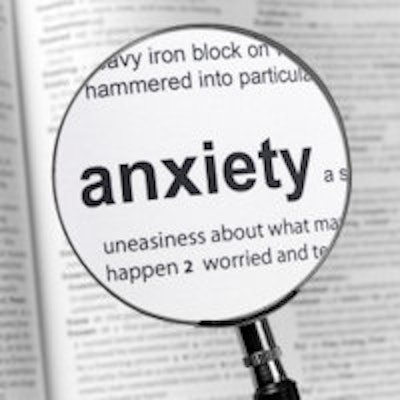
Dental professionals need to ensure that they deliver bad news to patients in a sensitive and supportive way, according to a new study in the Journal of the American Dental Association (April 2013, Vol. 144:4, pp. 381-386).
Using communication to address potential concerns related to diagnosis will help ensure that the patient understands the importance of compliance with further testing and referrals. However, breaking bad news is a difficult task, for which most dental care practitioners often have received little or no education, the study authors noted.
Information that produces a negative expectation can be considered bad news, the researchers stated. "Receiving and breaking bad news are difficult for both patients and healthcare professionals," they wrote.
While most medical schools have some form of education relating to communication, death, and dying, the ability to deliver difficult news effectively and sensitively also is an important part of dental education, the researchers emphasized.
A 2003 survey of U.K. dentists found that they were uncomfortable discussing oral cancer screenings with their patients, they noted (Primary Dental Care, July 2003, Vol. 10:3, pp. 81-86). Thus, dental schools should develop special courses on how to deliver negative prognoses.
The researchers surmised the reason that such instruction is not commonly included in dental school stems from a false presumption that dental professionals don't typically provide bad news to patients. But many oral and systemic conditions may be recognized during dental visits, they noted.
"To improve the provision of information related to a serious oral finding, courses should be developed regarding interviewing techniques, communication skills associated with breaking bad news, and motivational interviewing to address the relevant issues," the researchers wrote.
Such skills would also help patients who might resist changing bad behaviors such as tobacco, alcohol, and illicit drug use or not complying with necessary follow-up treatment.
To help deliver distressing information to patients, the study authors offered an ABCDE guide:
Advance preparation. Arrange for adequate time, privacy, and no interruptions. Review relevant clinical information and test results as appropriate; review current general recommendations for treatment and general outcomes. Mentally rehearse and identify words or phrases to use and avoid.
Build a therapeutic relationship or environment. Determine what and how much the patient wants to know. Have family or support people present, if appropriate. Warn the patient that bad news is coming. Use touch when appropriate. Arrange next steps, follow-up appointments, or referrals.
Communicate well. Ask what the patient and his or her significant other already know. Ask how much and what kind of information will be helpful. Be frank but gentle and compassionate; avoid euphemisms and also medical and dental jargon. Have the patient describe his or her understanding of the news; repeat the information when summarizing the discussion and at subsequent visits. Allow time for questions and provide written information. Conclude each visit with a summary and a follow-up plan.
Deal with patient and family reactions. Assess and respond to the patient's and other people's emotional reactions. Don't argue with or criticize colleagues.
Encourage and validate emotions. Explore what the news means to the patient. Offer realistic hope according to the patient's goals. Provide positive information, a basic or initial approach to treatment, and a prognosis (such as "early diagnosis allows less complex, less costly, and more successful outcomes"). Take care of your own needs; be attuned to the needs of staff.
Studies show that delivering both bad and good medical news can produce acute stress responses, including increases in self-reported distress and cardiovascular responses, the researchers noted.
"Considering that dental care providers may experience psychological distress when delivering bad news, we recommend education," they concluded. "Bearing in mind that clinicians have the responsibility to communicate with patients about numerous scenarios regarding various treatment options, the need to educate oral healthcare professionals regarding the assessment of clinical care for patients is clear."



















